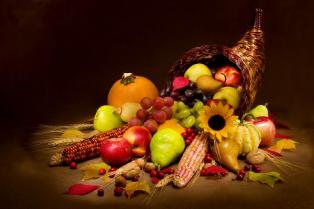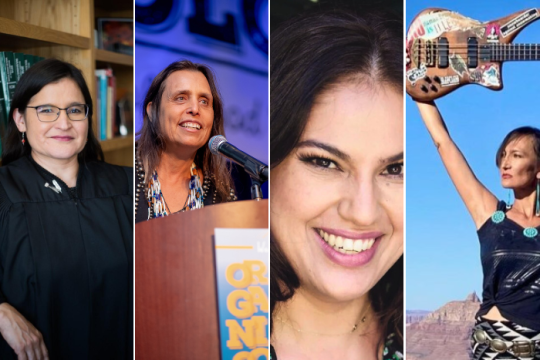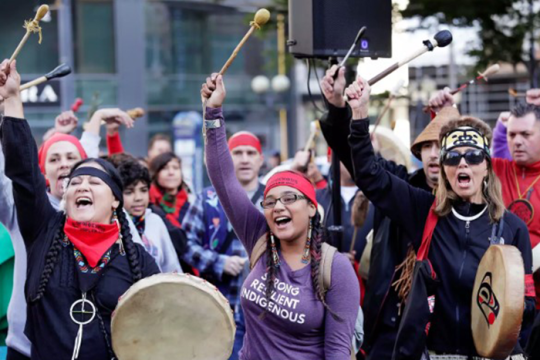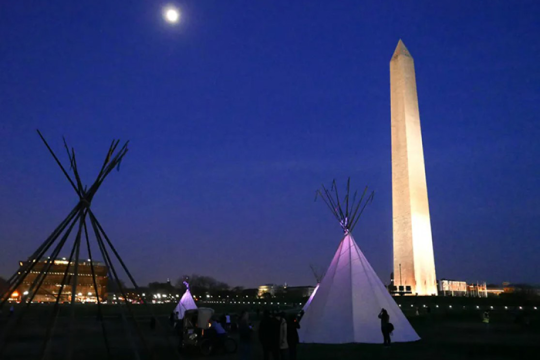
Today, I am not posting this blog from my desk at the Religious Action Center in D.C. Instead, I’m posting it from my home in Los Angeles, where I have travelled to celebrate the Thanksgiving holiday. This holiday has always been a favorite of mine – I love any occasion where my whole family gets together, and I particularly like the opportunity to reflect on what in my life in the past year I am feeling most grateful for at that moment. Yet I don’t often think about what Thanksgiving stands for beyond whatever meaning is inherent in its descriptive name, or how I, as a young adult in 2012, connect to Thanksgiving’s roots.
As many of us remember from our elementary school curricula, Thanksgiving commemorates the lovely meal shared by the early Puritan settlers and members of the local Wampanoag tribe in the early 1620’s – the image of which served as an indication of their collaboration and good will. However—as you may imagine—the actual story was probably not so simple. Some have gone so far as to suggest a national day of mourninginstead of Thanksgiving to properly pay tribute to the genocide of indigenous people that surrounded the conquest and colonization so central to—yet so ignored in—the Thanksgiving narrative.
As Jews, we are a people whose modern identity has certainly been shaped by exclusion, prejudice and genocide. We have been expelled from multiple lands, and have been the targets of mass killing. More recently, we have been at the forefront of movements to recognize and fightgenocides occurring around the world.
So how, on Thanksgiving, do we reconcile these two pictures? How do we at once appreciate what is probably an all-too-rare chance to be with family and reflect on the blessings in our lives, while still paying tribute to some of the darker realities behind this seemingly innocuous holiday?
For me, the answer lies in action. As I think about the Native Americans who sat around the first Thanksgiving table, I will also think about the Native Americans in our country today who are the victims of poverty and discrimination, and will work for a Native American-inclusive version of the Violence Against Women Act. As I eat my turkey and stuffing, I will think about the millions of Americans who do not have food on their table, and will work to protect our country’s anti-hunger programs. As I think about the strangers who came to this land by boat hundreds of years ago, I will think of the millions of immigrants in America today who live as unrecognized second class individuals, and will push for immediate and comprehensive immigration reform. And as I think about the moment of serenity and peace as two different groups sat down at the same table to share a meal, I will think about the violence in the Middle East, and will work to promote peace in Israel. Today, I will be giving thanks for the opportunity to act and to do my part in repairing the world around me.
Image originally found here.
Related Posts

Artists, Authors, Activists, and More: Four Inspiring Indigenous Jewish Women

Celebrating the Indigenous Community is a Year-Round Value

